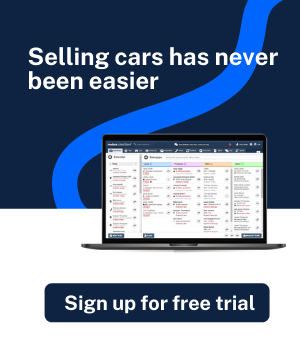
The IT enterprise has grown by leaps and bounds in the last two decades, while introducing numerous innovative technologies that have made it much easier to operate businesses and associated tasks. However, some industries are still stuck using older hardware and software, which are known as legacy systems. Many are reluctant to embrace modern technology, so they continue using these outdated systems.
Common issues with legacy document software
Risks of security breaches
Legacy document software makes networks more prone to security attacks and data breaches. That is why systems are frequently updated in reaction to increasingly sophisticated cybercriminals and modern security threats. But older and obsolete systems stopped receiving security updates long ago, so their vulnerabilities leave a company’s data security severely compromised.
Lack of integration
Long-outdated software often lacks internet connectivity or the ability to even run modern apps like a web browser. So if your systems can’t use tools like the rest of the world, you lose information in data silos. These issues hinder the ability to work with B2B partners, external stakeholders, and your customers. For example, sharing files with customers is also a common scenario these days. Even if you find a way around connectivity problems, customers and vendors probably can’t open or view your legacy system’s file formats.
Maintenance is expensive
A common misconception is that holding on to current systems is much more cost-effective compared to replacing them with new technologies. However, as mentioned above, when updates and support stop for legacy systems, an excessive amount of time and effort is required to keep them functioning. Even attempting to share data with internal stakeholders can be difficult. For instance, those with the latest equipment can’t work with files that are in outdated or unreadable formats. It leads to unnecessary maintenance costs that would be better spent elsewhere.

Compliance issues
Modern software automatically updates itself via a web connection or cloud server. Since legacy software was created before the internet was adopted widely, finding security updates can be a near-impossible task. Many vendors of legacy systems have gone out of business, so contacting them won’t do any good. In that case, the only option may be crawling through ancient FTP servers, looking for updated packages or newer versions of the legacy software. By keeping older systems without updates around, you risk falling out of certification. Thus, you are under the risk of being out of compliance with modern information security standards, which can drastically impact overall revenue as you could lose customers.
How to solve the above-mentioned issues?
Data and information are the backbone of all businesses, which is why they have to be documented on a regular basis. A cloud-based Document Management System (DMS) is all the more vital these days. It has the following benefits:
Seamless integration
Document management is mostly about organizing and streamlining everyday administrative tasks. A DMS like Modera Importer brings all crucial documents onto a fully integrated and centralized platform so the core business processes, including customer relationship management and accounting, can function without hassle. No more using multiple fragment data systems – everything remains consistent.
Proper support options
With a locally hosted DMS, it becomes the responsibility of your IT team to manage aspects like access rights, handle software patches and hardware upgrades, and ensure the system runs smoothly. Thanks to a cloud-enabled system, you can outsource support and maintenance, while having someone to reach out to, if and when you require assistance.
Robust data security
Security should always be the top priority of any organization. A quality DMS like Modera Salesfront not only makes the job of dealerships much easier, but it also offers rigorous security using industry-leading and globally recognized standards and protocols. It is also fully compliant with regulations that are industry-specific.

Reduced capital expenditures
Speaking of the cloud, not having to invest in hardware can have a positive impact on your bottom line. Hardware and the staff required to administer and support it, can be quite expensive. Cloud services, like Modera Importer and Modera Salesfront, on the other hand, are usually very cost-effective. Instead of a massive upfront capital expenditure, you can typically meet your business’s needs with monthly or annual cloud subscriptions.
Improvements in performance
Legacy document systems require a lot of maintenance. As with any machine, older computer hardware wears out over time, while the software becomes outdated. Incompatibility makes repairs or even regular system maintenance extremely costly. When you replace old systems with a modern cloud-based DMS, you will notice there are immediate improvements in performance. Information sharing with customers is no longer a concern. You can work with acceptable file formats or even automate your B2B data exchange via APIs. Customers won’t think of your company as obsolete anymore when you upgrade to modern and efficient technology.
Staying competitive in today’s business world means being part of the digital economy, which means investing in a quality DMS like Modera, is a must. It ensures you can keep up with customers and other stakeholders while staying ahead of competition at the same time.


